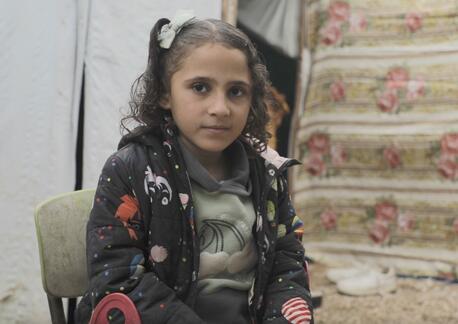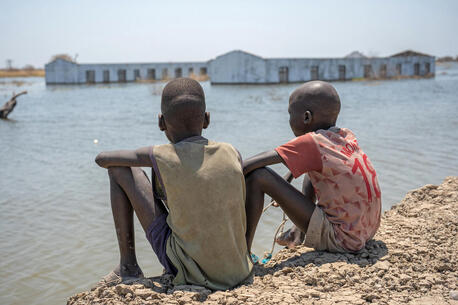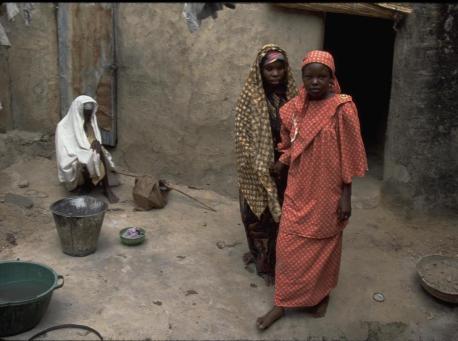
Futures at Risk: Wars and Disasters Are Keeping Children Out of School
More than 104 million children growing up amidst humanitarian crises worldwide are missing out on an education.
In countries affected by wars, conflicts and natural disasters, children are the most vulnerable. They often lose their homes, family members, friends, sense of safety and routine. When they can't go to school, their futures are also at risk.
According to a new UNICEF report, A Future Stolen: Young and Out-of-School, more than 104 million children between the ages of 5 and 17 — one out of every three — are out of school in countries affected by conflicts and natural disasters.
Here's a closer look at three countries where protracted violence is putting children's futures in jeopardy:
SYRIA

Almost 400 families are living in a makeshift camp just north of Idlib, Syria after fleeing violence in southern rural Idlib. © UNICEF/UN02326961/Watad
Since Syria's civil war began in 2011, children have paid the highest price. Millions of children have never known peace. Access to basic and lifesaving services has been severely restricted and, in some areas, completely cut off. More than 13 million people, including 5.3 million children, need urgent lifesaving assistance. The conflict has prevented 2.8 million children from getting an education. In parts of Syria, going to school has become a matter of life and death due to unrelenting violence and frequent attacks on schools.
YEMEN

In Yemen, a girl carries emergency humanitarian supplies distributed by UNICEF in Hodeidah. © UNICEF/UN0219931
The conflict in Yemen has taken a devastating toll on children. More than 11 million children — nearly every child in the country — need emergency humanitarian aid including nutrition, safe drinking water, vaccines and educational assistance. Almost 2.2 million people, nearly half of them children, have been forced from their homes. Across the country, there are acute shortages of food, fuel and medicine. Families desperate to feed and protect their children are turning to child marriage. More than 4 million children are out of school. Education for these children cannot wait.
SOUTH SUDAN

Students look at their workbooks at the only primary school in the Protection of Civilians (PoC) site in Wau, South Sudan. More than 2,600 students are enrolled in the UNICEF-supported school. Classes meet in two shifts every day, with one teacher for every 100 students. © UNICEF/UN070615/Hatcher-Moore
Violence in South Sudan has pushed hundreds of thousands of children out of school. Since the conflict began in 2013, one in three schools across the country has been damaged, destroyed, occupied or closed. South Sudan has the highest proportion of out-of-school children in the world. More than 2 million children — more than 70 percent of those who should be in school — are missing out on an education.
Every child has the right to go to school and to learn. Education transforms lives, providing children with a path out of poverty and the opportunity to build a better future for themselves, their families and their communities. UNICEF works to ensure that children in humanitarian crises have access to education by setting up safe learning spaces, providing School-In-A-Box kits and other supplies, and training teachers.
Please support UNICEF's education programs for children in crisis zones around the world.
Top photo: Ongoing conflict in Wau Shilluk, South Sudan, has destroyed homes, the school and hospital. © UNICEF/UN0236841/Rich
HOW TO HELP
There are many ways to make a difference
War, famine, poverty, natural disasters — threats to the world's children keep coming. But UNICEF won't stop working to keep children healthy and safe.
UNICEF works in over 190 countries and territories — more places than any other children's organization. UNICEF has the world's largest humanitarian warehouse and, when disaster strikes, can get supplies almost anywhere within 72 hours. Constantly innovating, always advocating for a better world for children, UNICEF works to ensure that every child can grow up healthy, educated, protected and respected.
Would you like to help give all children the opportunity to reach their full potential? There are many ways to get involved.





